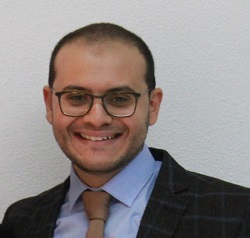Scholars International Webinar on
Drug Delivery and Nanomedicine
THEME: "Groundbreaking Discoveries and Developments in Nanomedicine and Drug Delivery"
 25-26 Aug 2021
25-26 Aug 2021  Online | Virtual
Online | Virtual THEME: "Groundbreaking Discoveries and Developments in Nanomedicine and Drug Delivery"
 25-26 Aug 2021
25-26 Aug 2021  Online | Virtual
Online | Virtual 
Pharos University of Alexandria, Egypt
Title: Oral delivery of Genistein-loaded phytosome for liver cancer treatment
Prof Ibrahim Mohsen started my career in the pharmaceutical field as a production pharmacist in different areas like manufacturing solid dosage forms (tablet/capsules). I got a master's degree in pharmaceutical sciences related to soft gelatin capsule manufacturing technology in 2015. I started my academic career as a Lecturer assistant and was promoted to lecturer after I got my Ph.D. degree in pharmaceutical sciences related to developing drug delivery systems for phytopharmaceuticals in 2019. During my work in the university, I worked as clinical director in the bio-equivalence center in Alexandria (part-time) and was promoted to technical director after I got my Ph.D. degree. My research interest is the development of different oral delivery systems for phytopharmaceuticals and/or novel drug molecules then optimize the delivery system to control its efficacy via optimizing its pharmacokinetics and bio-distribution till development its end dosage form with good stability properties and good patient compliance.
Genistein (Gen) is one of the most potent soy isoflavones used for hepatocellular carcinoma (HCC) treatment. Despite its clinical significance, many biopharmaceutical obstacles limit its product development as low aqueous solubility and first-pass metabolism resulting in low oral bioavailability. The current study aims to introduce phytosomes as an approach to improve Gen oral bioavailability and get used to PC in Gen lymphatic delivery. Different forms of PC were used in phytosome preparation. The effect of formulation components on Gen absorption, metabolism, and liver accumulation was evaluated following oral administration to rats. Cytotoxicity and cellular uptake studies were applied on HepG2 cells and in-vivo anti-tumor studies were applied to the DEN-mice model. Results revealed that GP and GPL remarkably accumulated Gen aglycone in hepatic cells, showing its therapeutic potential towards liver cancer treatment.